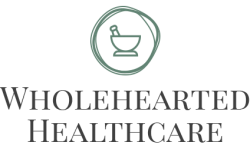Preconception care starts much earlier than you think!
As every mum-to-be knows, looking after yourself during pregnancy is vital for the health of both you and your baby. But did you know that preconception care should begin several months before you fall pregnant? This period has a lot to do with your chances of falling pregnant, staying pregnant, and having a healthy baby.
The cells that will become your baby are created long before conception. It takes around 100-120 days for your eggs to become ready for ovulation, and 70-90 days for your partner’s sperm to reach maturity. This means that the health of each partner will have a major impact on your baby’s health. Both partners should begin preparing for your pregnancy around 2-3 months out from when you actually expect to conceive.
The first trimester is the period of the greatest amount of growth: that little foetus will increase in size by an incredible 2.5 million times. From 12 weeks to full-term, the size will increase by another 230 times. It’s during this period that the embryo undergoes the most critical period for cell differentiation and organ development including their spinal cord and brain.
Not surprisingly, this growth requires an enormous store of nutrients! And while it may seem that you can just start taking vitamins when you find out you’re pregnant, this may not be soon enough for your nutritional status to get up to speed. If you’re deficient in any nutrient, it can take up to three months to replenish that nutrient and correct any defect that it could lead to.
A healthy diet and the right supplements are crucial when preparing your body for pregnancy.

The preconception diet
Following a Mediterranean-type diet is often recommended in the months leading up to (and during) pregnancy:
- Omega-3 fatty acids from high-quality fish oil or wild-caught fish (salmon, trout, herring). These fatty acids are vital for ensuring stable cell membrane fluidity and energy production within your eggs
- Plenty of lean protein from poultry, chicken, fish, nuts, and seeds. Every cell in the body requires protein for healthy development.
- A wide variety of dietary antioxidants to protect your cells from free radicals and support reproductive health. Choose brightly-colored vegetables and fruits and leafy greens in their natural, unprocessed state (or organic where possible). Raw juices, nuts, beans, eggs, and grains also have enormous benefits for your nutritional intake.
Here’s what to limit or avoid:
- Large amounts of refined sugar, especially in cakes, cookies, chocolate, and soft drinks.
- Caffeine
- Alcohol
- Trans fatty acids and fried foods
- Processed foods
Supplementation for healthy conception
Essential nutrients to add to your supplement regime include:
Vitamin A
An important antioxidant required for cell growth and differentiation, which is vital for the development of the embryo. Doses below 10,000 IU/day are recommended,
Vitamin C
Protects the body from damaging free radicals and also against the oxidation of folate and vitamin E, both of which are essential for healthy fertility.
Vitamin B9
Folate is crucial for the healthy synthesis of DNA and RNA. It’s also involved in normal protein synthesis and regulation of gene expression. Folate deficiency is associated with impaired DNA synthesis and repair, which can lead to complications.
Vitamin B12 (Cyanocobalamin)
Required for cell replication and metabolism of folate and amino acids. Also supports the myelin sheath (the protective case around the spinal cord and brain of the foetus). Folate and vitamin B12 work together to maintain healthy DNA and RNA in every cell in the body, so both should be taken throughout preconception and pregnancy.
What about MTHFR?
MTHFR stands for methylenetetrahydrofolate reductase: an enzyme involved in the process of DNA methylation. Methylation is also required to convert both folate and folic acid into 5-MTHF, the active form your body can use.
The problem with the MTHFR gene is that it has the tendency to mutate. Around 30% of the world’s population has some form of polymorphism which can affect the body’s ability to process certain amino acids and B-vitamins, especially folate. This can lead to low folate levels, which can have severe consequences for fertility and pregnancy.
Folate is required for an enormous range of enzymatic reactions involved in making amino acids and metabolising vitamins. During pregnancy, your needs for folate increase because it plays a crucial role in proper DNA replication. Folate deficiency can mean a higher risk of congenital abnormalities, and a higher risk of anaemia or peripheral neuropathy for mums.
Unfortunately, the folic acid that is in many commercial prenatal supplements such as Elevit is NOT the same as the bioavailable folate that your body needs. If you’re one of the 30-40% of people who have MTHFR polymorphism, folic acid will not be beneficial to you because your body can’t convert it to a form it can use.

The good news is that there are plenty of prenatal supplements that DO contain the right form of folate. The bioactive form that your body uses in circulation is called 5- Methyltetrahydrofolate (5-MTHF folate).
Remember, the neural tube (the embryonic precursor to a baby’s central nervous system) occurs very early in pregnancy: around 21-27 days after conception. This means the most important time to take methylated folate is both while trying to conceive and during early pregnancy.
Yes, preparing for pregnancy can feel a little overwhelming – but I’m here to help you out. I can guide you through choosing the right foods and making any necessary lifestyle changes during the preconception period. I also have access to practitioner-grade prenatal supplements that contain all the right levels of nutrients you need for a healthy pregnancy. Your baby deserves the best!





